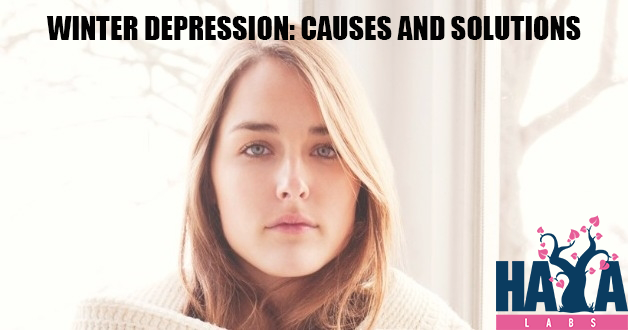
Winter depression: causes and solutions
0
1247

Light
Some researchers are convinced that the lack of sunlight is to blame for the winter blues. Studies have shown that people who are prone to this disorder are particularly sensitive to light and after a brief exposure to bright light their symptoms seem to lessen. The main issue is not getting enough light in the morning because the brain interprets darkness as a sign that we should still be in bed and sleeping - hence the general sense of fatigue during the day. Also many people who suffer from seasonal affective disorder are genetically predisposed to depression.
Melatonin
Another cause for the lack of good mood during the cold months could be overproduction of melatonin – the hormone related to sleep. Again – the lack of sunlight leads to imbalance of the natural chemistry of the body and thus the secretion of melatonin is higher than it needs to be. Although the many benefits from the sleep hormone are absolutely undeniable, too much of it can cause issues. Certain studies have linked melatonin to worsening overproduction the symptoms of general depression.

Social isolation
The Christmas holiday is usually a joyful opportunity for everyone to be with their family and loved ones.
read more

Vitamin D
Winter is rightfully associated with lack of Vitamin D, which is often called “sunshine vitamin” because it is produced as a result between the contact of skin cells and sunlight. . Reduced daytime and freezing weather leaves most of people with a risk for deficiency which brings about danger for serious health issues, one of them being winter depression. Many scientists explain seasonal affective disorder with the lack of vitamin D and recommend taking supplements with this vitamin as a form of sufficient cure. Vitamin D is found in many areas of the brain, including such that are linked to developing depression.

Conclusion
In case you do have seasonal affective disorder and it is preventing you from functioning during the winter, the first thing to remember is that you are not alone. Educate yourself as much as possible about the disorder in general and your personal relationship with it. Don’t forget to meet up with your friends, every time the sun is out – don’t stay indoors and consult a medical professional for further steps.
.







